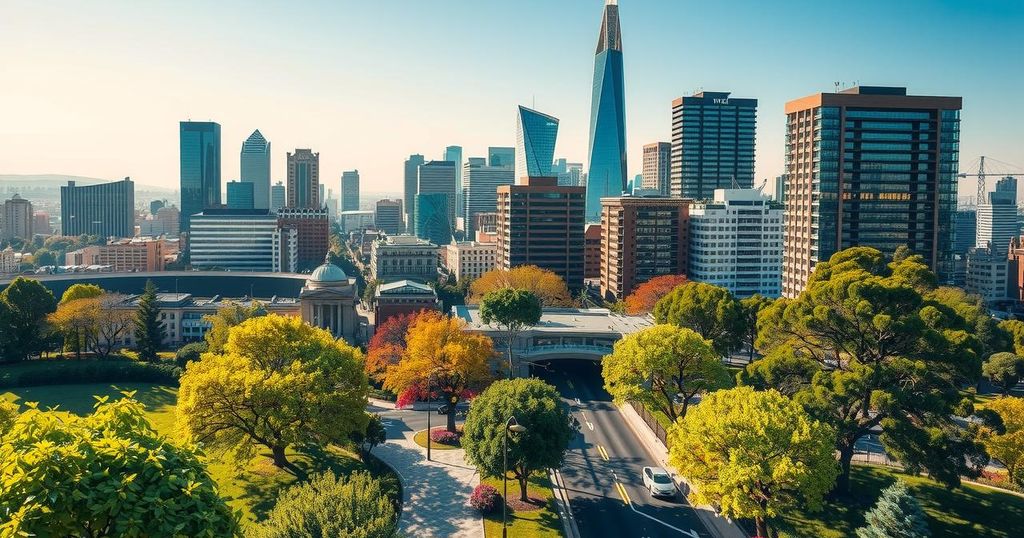Johannesburg’s Transformation: From Crime Crisis to Urban Revival
Johannesburg is undergoing a remarkable revival from its previous status as a crime hub. Ponte Tower symbolizes this transformation, having recovered from substantial neglect. Initiatives by companies like Ithemba and organizations such as JoziMyJozi aim to improve the city’s infrastructure and public perception. Although challenges remain, there is optimism that Johannesburg can emerge as a safe, attractive global city.
Johannesburg, once deemed a perilous city, is experiencing a remarkable revival. Notable landmarks like Ponte Tower, built in 1975, epitomize this transformation. Once overrun by crime in the 1980s, Ponte Tower now thrives post-2010 World Cup, witnessing a resurgence of residents. Though challenges persist, such as water crises and lingering crime, initiatives are underway to rejuvenate the city’s spirit and infrastructure.
Ithemba, a notable property development company, is pivotal in Johannesburg’s revitalization. With significant demand for living spaces within the Central Business District (CBD), Ithemba manages thousands of properties and anticipates substantial growth. Their flagship project, Jewel City, has attracted residents as post-COVID recovery takes hold. Recent investments in lighting and other infrastructural developments aim to enhance safety and community engagement.
Community groups are also active in fostering hope through various city improvement initiatives. JoziMyJozi, for example, has undertaken projects to illuminate darkened areas, promote cleanliness, and revive public spaces. Bea Swanepoel, CEO of JoziMyJozi, believes these efforts can reshape perceptions of Johannesburg, aspiring to uplift the city into a recognized global destination akin to London or New York.
Looking ahead, Johannesburg is poised to host the G20, which may generate new investments and international attention. As local efforts converge to alleviate crime and enhance living conditions, the city aims to solidify itself as a beacon of hope for residents. The collaboration of organizations like Dlala Nje and proactive property developments establishes a foundation for success.
In summary, Johannesburg’s journey from a crime-ridden past to a city of potential marks an essential chapter in South Africa’s narrative. Ongoing initiatives highlight resilient community spirit and a commitment to restoring urban vitality. Through collective action and investment, Johannesburg envisions a bright future, shifting its global standing positively.
Johannesburg has undergone significant transformation since the 1980s when it faced rampant crime and urban decay. The advent of the FIFA World Cup in 2010 marked a turning point for the city, spurring revitalization efforts that included property development and community engagement initiatives. Despite ongoing challenges like crime and infrastructural issues, the city’s resilience and proactive measures indicate a promising future. Understanding the historical context of Johannesburg’s decline and subsequent revival is crucial for grasping the current dynamics in the city.
In conclusion, Johannesburg exemplifies a city in transition, overcoming a tumultuous history to embrace an era of renewal. The dedicated efforts of property companies, community organizations, and public initiatives are crucial in addressing lingering issues while promoting safety, investment, and hope among residents. With future opportunities, such as hosting the G20, Johannesburg is on track to redefine its international reputation and provide a revitalized urban experience.
Original Source: www.bbc.co.uk




Post Comment